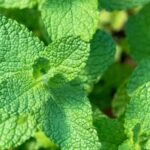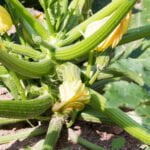What manure is best for vegetable gardens? When it comes to natural fertilizers, manure is a popular choice for many gardeners. It provides essential nutrients to the soil, promoting healthy plant growth and bountiful harvests. In this article, we will explore the benefits of using manure in vegetable gardens and discuss the different types of manure available.
Using manure as a natural fertilizer in vegetable gardens offers numerous benefits. Not only does it provide essential nutrients such as nitrogen, phosphorus, and potassium, but it also improves soil structure and increases its water holding capacity. Additionally, manure promotes beneficial microbial activity in the soil, contributing to overall soil health and fertility. Before deciding on the best type of manure for your vegetable garden, it’s crucial to understand the various options available and their unique nutrient content.
When it comes to choosing the best manure for your vegetable garden, there are several factors to consider. Different types of animals produce different types of manure, each with its own nutrient profile. In the following sections, we will explore the types of manure commonly used in vegetable gardens, their nutrient content, and how to effectively incorporate them into your gardening practices.
Types of Manure
When it comes to choosing the best manure for vegetable gardens, it’s important to consider the different types of manure available and their nutrient content. Here are some common types of manure and their benefits:
1. Cow Manure: Cow manure is widely available and contains a good balance of nutrients, making it suitable for most vegetable crops. It is rich in organic matter, nitrogen, and other essential nutrients that promote healthy plant growth.
2. Horse Manure: Horse manure is also a popular choice for vegetable gardens. It is well-balanced in nutrients and contains higher levels of potassium, making it ideal for fruiting vegetables like tomatoes and peppers.
3. Chicken Manure: Chicken manure has one of the highest nitrogen contents among animal manures, making it great for leafy greens and other fast-growing vegetables. However, it should be composted thoroughly before use to avoid burning plants due to its high ammonia content.
4. Sheep Manure: Sheep manure is another excellent option for vegetable gardens, as it is rich in both nitrogen and potassium. It also has a lower chance of carrying weed seeds compared to other types of manure.
It’s essential to note that while all types of manure can provide valuable nutrients to the soil, they must be composted before application to eliminate potential pathogens and reduce the risk of burning plants. Composting not only makes the nutrients more readily available to plants but also helps improve soil structure and fertility over time.
In addition to considering the type of manure, it’s crucial to evaluate the specific nutrient requirements of your vegetable crops before applying any type of manure. By understanding the nutrient content of different types of manure, gardeners can make informed decisions about which type will best meet their specific needs.
Composting Manure
Process of Composting
Composting manure is an important step in preparing it for use in vegetable gardens. The process involves allowing the manure to decompose and break down over time, resulting in a nutrient-rich fertilizer that is safe for plants.
This can be done through traditional composting methods, such as creating a compost pile or using a compost bin, where the manure is mixed with other organic materials and allowed to decompose naturally. Turning the compost regularly helps speed up the decomposition process.
Benefits of Composted Manure
Composted manure offers several advantages over fresh manure when used in vegetable gardens. Firstly, the composting process eliminates weed seeds and reduces potential odors associated with fresh manure. Additionally, composted manure has a lower risk of burning plants, making it a safer option for gardeners. Furthermore, the nutrients in composted manure are more readily available to plants, providing them with a sustained source of nourishment throughout the growing season.
Using Composted Manure in Vegetable Gardens
When applying manure to vegetable gardens, using composted manure is often recommended due to its numerous benefits. Prior to planting, work the composted manure into the soil to improve its structure and fertility. It can also be used as a top dressing around existing plants or side dressing alongside rows of vegetables. Incorporating composted manure into the soil helps enhance its overall health and productivity, ultimately leading to healthier and more abundant vegetable crops.
Application Methods
When it comes to using manure in vegetable gardens, the application method is crucial for ensuring that the nutrients are effectively absorbed by the plants. There are various methods for applying manure to vegetable gardens, each with its own advantages and considerations. It is important to understand the best application methods for different types of vegetables in order to maximize the benefits of using manure as a natural fertilizer.
Top Dressing
One common application method for manure in vegetable gardens is top dressing. This involves spreading a layer of composted or well-aged manure on the soil surface around the base of the plants. Top dressing provides a slow release of nutrients as the manure breaks down, feeding the plants over an extended period of time. This method is particularly effective for heavy feeders like tomatoes, peppers, and squash.
Side Dressing
Side dressing involves creating a small trench or furrow alongside the plants and adding fresh or composted manure into the trench. This method allows for direct application of nutrients to specific plant roots, promoting healthy growth and development. Side dressing can be beneficial for leafy greens, root vegetables, and fruit-bearing crops.
Trenching
Trenching is another effective method for incorporating manure into vegetable gardens. This technique involves digging a trench before planting and filling it with well-rotted or composted manure. As the plants grow, their roots are able to access the nutrient-rich soil at their base, promoting strong and vigorous growth. Trenching can be especially beneficial for deep-rooted vegetables like carrots, potatoes, and onions.
By choosing the right application method for their vegetable gardens, gardeners can ensure that they are getting the most out of using manure as a natural fertilizer. Understanding how different methods affect nutrient absorption and plant growth is essential for maximizing the benefits of this organic soil amendment throughout the growing season.
Considerations and Cautions
Manure can be a valuable and effective natural fertilizer for vegetable gardens, but it is important to consider certain factors and exercise caution when using it. When determining what manure is best for vegetable gardens, it is crucial to take into account the nutrient content of different types of manure as well as potential considerations such as odor, pathogens, and the risk of burning plants.
One of the most common questions about using manure in vegetable gardens is: What manure is best for vegetable gardens? The answer to this question depends on the specific needs of your garden and crops. Cow manure is often praised for its balance of nutrients, making it suitable for a wide range of vegetables.
Horse manure is also popular due to its high nitrogen content, which benefits leafy green vegetables. Chicken manure is rich in nitrogen, phosphorus, and potassium, making it a good choice for fruiting vegetables. While sheep manure may not be as widely available, it also provides valuable nutrients such as nitrogen and potassium.
In addition to considering the nutrient content of different types of manure, gardeners should also be mindful of potential issues when using fresh manure. Fresh manure can have a strong odor that may be unpleasant or disruptive to nearby areas. It can also contain harmful pathogens such as E. coli and salmonella that can pose risks to human health if not properly handled.
Furthermore, applying fresh manure directly onto plants or soil can lead to “burning,” causing damage to crops due to excess nutrients or salts. These considerations highlight the importance of composting manure before using it in vegetable gardens.
| Manure Type | Nutrient Content |
|---|---|
| Cow Manure | Balance of nutrients suitable for various vegetables |
| Horse Manure | High nitrogen content beneficial for leafy greens |
| Chicken Manue | Rich in nitrogen, phosphorus, and potassium beneficial for fruiting vegetables |
| Sheep Manue | Nutrients like nitrogen and potassium make it valuable though less widely available |
Organic vs Conventional Manure
When considering what manure is best for vegetable gardens, it’s important to weigh the benefits and drawbacks of using organic manure versus conventional manure. Organic manure, such as cow or horse manure, is derived from animals that have been raised without the use of synthetic fertilizers, pesticides, or antibiotics.
This type of manure is rich in nutrients and microbiota, promoting healthy soil and plant growth. On the other hand, conventional manure may come from animals that have been exposed to chemicals and antibiotics, which can potentially harm the soil ecosystem.
One significant advantage of organic manure is its ability to improve soil health over time. The natural processes involved in raising organic livestock leads to nutrient-rich manure that enhances the overall fertility and structure of the soil. In contrast, conventional manures may contain residues of synthetic chemicals and antibiotics that can persist in the soil and impact its long-term health.
In addition to these considerations, it’s also essential to think about the potential impact on crop quality when choosing between organic and conventional manure for vegetable gardens. Studies have shown that crops grown with organic methods, including the use of organic manure, tend to have higher levels of beneficial compounds such as antioxidants compared to conventionally grown crops. This suggests that using organic manure in vegetable gardens can contribute to producing more nutritious and high-quality vegetables.
| Manure Type | Nutrient Content |
|---|---|
| Organic (Cow/Horse) | Rich in nutrients and microbiota |
| Conventional (Chemical-treated) | Potential residues of synthetic chemicals and antibiotics |
Manure Alternatives
When it comes to fertilizing vegetable gardens, manure is often seen as a go-to natural option. However, there are also alternatives that can provide similar benefits without the use of animal waste. It’s essential to explore these options to find the most suitable fertilizer for your garden’s needs.
One alternative to manure is compost, which consists of decomposed organic matter. Compost enriches the soil with nutrients and improves its structure, promoting healthy plant growth. It can be made from various materials such as kitchen scraps, yard waste, and leftover plant trimmings. Compost is an eco-friendly option that reduces waste and nourishes the soil without the potential odor concerns associated with fresh manure.
Another alternative is seaweed-based fertilizers. These organic products are derived from nutrient-rich seaweed and are valued for their ability to improve soil quality and enhance plant growth. They contain essential minerals and trace elements that contribute to overall plant health. Seaweed-based fertilizers are also known for their ability to boost plants’ resistance to stressors like pests and diseases.
In addition, cover crops can serve as a natural fertilizer alternative in vegetable gardens. Planting cover crops such as legumes or clover helps improve soil fertility by fixing nitrogen into the soil and preventing erosion. As cover crops grow, they add organic matter to the soil when they are eventually tilled under, enhancing its nutrient content for future vegetable crops.
These alternatives offer viable options for those seeking natural fertilizers other than traditional manure. By considering the specific needs of your vegetable garden and weighing the benefits of each option, you can make an informed decision on what type of fertilizer is best suited for your gardening goals.
Success Stories and Tips
Using manure as a natural fertilizer in vegetable gardens has been a time-honored tradition for many gardeners. The benefits of using manure extend beyond just providing essential nutrients to plants; it also helps improve soil structure, moisture retention, and overall microbial activity in the soil. However, when it comes to choosing the best manure for vegetable gardens, there are several factors to consider. Let’s explore some success stories and tips for using manure effectively in your vegetable garden.
Success Stories:
– In a study conducted by the University of California Cooperative Extension, researchers found that organic vegetable gardens supplemented with composted chicken manure resulted in higher yields and improved soil health compared to synthetic fertilizers.
– Many organic farmers have reported significant improvements in the quality and flavor of their vegetables when using composted cow manure as a natural fertilizer. The slow release of nutrients from the composted manure helped sustain plant growth throughout the growing season.
Tips for Using Manure Effectively:
1. Composting: Composting manure before applying it to your vegetable garden is essential for reducing odor, minimizing potential pathogens, and preventing burning plants. It also allows for better nutrient absorption by plants.
2. Application Timing: It’s important to apply manure at the right time during the growing season to avoid nutrient leaching and minimize risks of contamination.
3. Soil Testing: Conduct regular soil tests to determine nutrient levels and adjust your manure application accordingly to maintain a balanced soil fertility.
Learning from these success stories and following these tips can help you make the most out of using manure in your vegetable garden while ensuring healthy plant growth and high-quality produce.
Conclusion
In conclusion, when it comes to determining what manure is best for vegetable gardens, there are several factors to consider. Different types of manure, such as cow, horse, chicken, and sheep, each have their own nutrient content and benefits for the soil. The process of composting manure can further enhance its effectiveness as a natural fertilizer by reducing odors and pathogens while also improving its nutrient availability for plants.
When applying manure to vegetable gardens, it’s important to consider the best method for the specific type of vegetable being grown. Whether it’s top dressing, side dressing, or trenching, the application method can impact the success of using manure as a fertilizer. Additionally, organic manure may offer different benefits compared to conventional manure in terms of soil health and crop quality.
While using manure as a natural fertilizer can be highly beneficial for vegetable gardens, it’s essential to consider some cautions and alternatives. These include potential odors and pathogens associated with fresh manure, as well as alternative organic fertilizers and soil amendments that can be used in place of or in conjunction with manure.
Overall, the use of manure in vegetable gardens has proven successful for many gardeners and farmers looking to improve soil health and crop productivity naturally. By considering the various types of manure available, understanding composting processes and application methods, and weighing the pros and cons of different options, individuals can make informed decisions about utilizing manure as a natural fertilizer in their own vegetable gardens.
For those interested in learning more about this topic or seeking further resources on using manure in gardening, there are numerous books and online guides available that provide additional tips and advice for maximizing the benefits of utilizing manure in vegetable gardens.
Frequently Asked Questions
Is Cow or Chicken Manure Better for Vegetable Gardens?
Both cow and chicken manure can be beneficial for vegetable gardens, but they have different characteristics. Cow manure is lower in nitrogen and higher in organic matter, making it great for improving soil structure.
Chicken manure, on the other hand, is higher in nitrogen and can be more concentrated, so it needs to be composted before using to avoid burning plants.
What Is the Best Manure for Veggie Gardens?
The best manure for veggie gardens really depends on the specific needs of the plants and the existing soil conditions. Generally, well-rotted cow or horse manure is a good choice as it adds organic matter and nutrients to the soil without the risk of burning plants.
Composted chicken or rabbit manure can also be effective in providing essential nutrients while improving soil structure.
What Vegetables Don’t Like Manure?
While most vegetable plants benefit from manure, there are some that don’t particularly like it. Root crops such as carrots, radishes, and potatoes may be negatively affected by fresh manure due to its high levels of nitrogen which can cause forking or excessive foliage growth instead of root development.
Additionally, leafy greens like spinach and lettuce may also become overly lush at the expense of producing quality edible leaves when grown in overly rich soil with too much fresh manure.

If you’re looking to get into vegetable gardening, or are just looking for some tips on how to make your current garden better, then you’ve come to the right place! My name is Ethel and I have been gardening for years. In this blog, I’m going to share with you some of my best tips on how to create a successful vegetable garden.





